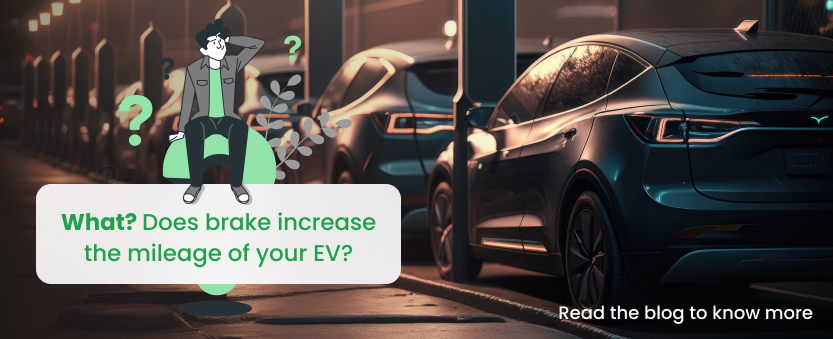
Hey, have you seen how many electric vehicles are on the road now? It's crazy! They're becoming way more eco-friendly. Did you know they have this cool regenerative braking system that saves energy when you brake? But I heard some people think it increases the car's mileage. What do you think? Let's check out this blog and find out for sure.
Regenerative braking is a technology used in EVs that transfer the kinetic energy produced during braking into electrical energy. This energy is then stored in the vehicle's battery and can be held to power the electric motor. Regenerative braking is more efficient than traditional braking systems as it recovers energy that would otherwise be lost as heat.
Yes, regenerative braking can increase an EV's mileage by converting the vehicle's kinetic energy into electrical energy, which is then stored in the battery. This energy can be used to power the vehicle, reducing the energy needed from the battery and increasing the vehicle's overall efficiency. However, the extent to which regenerative braking increases mileage depends on several factors, including driving habits, terrain, and the efficiency of the regenerative braking system.
Second, regenerative braking can also help improve the vehicle's overall efficiency. When the electric motor is used to slow the vehicle down, it reduces the energy needed to accelerate the vehicle back up to speed. This means that the vehicle will use less energy overall, which can help to increase the range of the vehicle. Here are some of the benefits of regenerative braking
Many electric vehicles on the market today are equipped with regenerative braking technology. Some popular models include the
However, only some-electric vehicles have regenerative braking, so it is essential to research before purchasing.